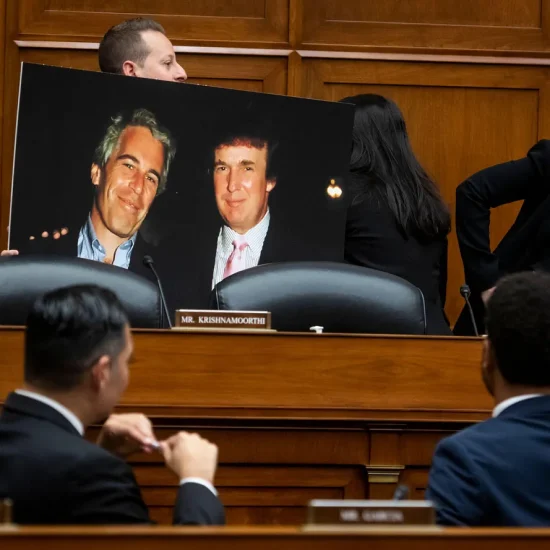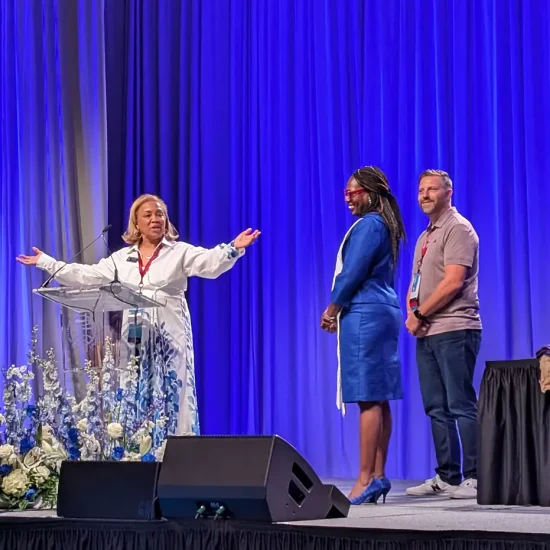
This month marks a bicentennial anniversary of a decision that radically impacted Baptists and others in the Midwest. That political decision — the “Missouri Compromise” — may seem insignificant to people other than historical geeks. But, as philosopher George Santayana famously quipped, “Those who cannot remember the past are condemned to repeat it.”

Brian Kaylor
The Missouri Compromise of 1820 — and the related Kansas-Nebraska Act of 1854 — shaped the nation in ways that continue to haunt our politics, justice system, and even churches. And it offers critical lessons for us today.
In 1819, residents in what is now Missouri submitted their request to be the second U.S. state west of the Mississippi (behind Louisiana). The statehood request, however, quickly hit a snag over the issue of slavery. For several years, states had been entering the Union essentially in pairs — Indiana and Mississippi, Illinois and Alabama — to keep the number of free and slave states equal. If admitted as a state legalizing slavery, Missouri would tip the balance of power in the U.S. Senate and electoral college to the side of slavery.
Rep. John Taylor, a Republican from New York, argued in 1819 that the decision about Missouri would “decide the destiny of millions” through the American West. And it did.

Missouri Capitol building in Jefferson City
After more than a year of debate, Congress came to the so-called Missouri Compromise that would allow Missouri to enter with slavery and Maine to enter as a free state. President James Monroe added his signature on March 6, 1820, and that year is celebrated in stone in the Missouri Capitol.
The powers in Washington drew a line across the western territories essentially at Missouri’s southern border (except the bootheel) to authorize slavery below that line as well as in Missouri.

Marking Missouri’s statehood, inside the Capitol (Brian Kaylor)
That decision breathed new life into the evil institution of slavery. Now it could expand into even more states, as it would with Arkansas in 1836 and Texas in 1845. Many praised the Missouri Compromise for preventing a civil war over slavery. But it only delayed it for a biblical generation of 40 years.
And what’s worse, the pro-slavery forces that demanded the expansion of slavery into Missouri broke the compromise just 34 years later with the Kansas-Nebraska act that opened the door for those two states to enter the union with a local vote over the issue of being a free or slave state. Now, slavery could go anywhere. The nation soon devoured itself in four years of apocalypse.
As I reflect on this 200-year anniversary, lessons emerge for us today if we’re willing to remember:
1. If you compromise with evil, you get evil. Lawmakers who rightly opposed slavery finally agreed to the Missouri Compromise as a way to try and keep even. But in doing so they doomed hundreds of thousands of more people beyond the Mississippi to a lifetime in bondage. They voted for evil. And even after making such a large concession, those lawmakers who compromised their beliefs found their compromise destroyed by the forces of evil who didn’t feel a need to honor the deal. In politics today, compromise is often needed and healthy to get legislation passed. But we must draw moral lines not to cross even in the name of getting along.
2. Don’t leave the work of justice to the next generation. The lawmakers of 1820 didn’t prevent a civil war; they just left the mess for the next generation to fix. And since they lacked the moral courage and perseverance to remain committed to the work of justice, they condemned another generation of African Americans to torture, rape, and execution. May that not be said of us today. May we not put off the work that must be done for our children or grandchildren to solve.
3. We must honestly remember our past and repair the damage. Missouri will throw a party next year to celebrate 200 years as a state. But that remembrance must not gloss over the evil compromise that made it possible. Nine states have offered official apologies for slavery since 2007. However, Missouri and other states like Arkansas, Kentucky, and Texas have not. It would seem like a good action to take before celebrating a major milestone. After all, such states officially supported and enforced the evil institution.
And since most Baptist churches in slave states supported and were even led by slaveholders, our churches should also tell that history honestly, and then seek biblical repentance that includes apologizing and repairing the damage.
Brian Kaylor is editor & president of Word&Way.






